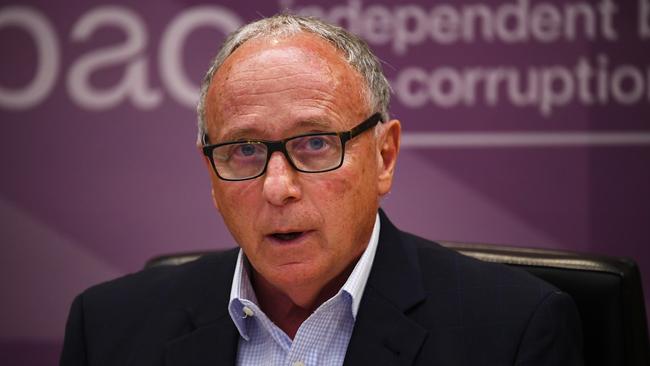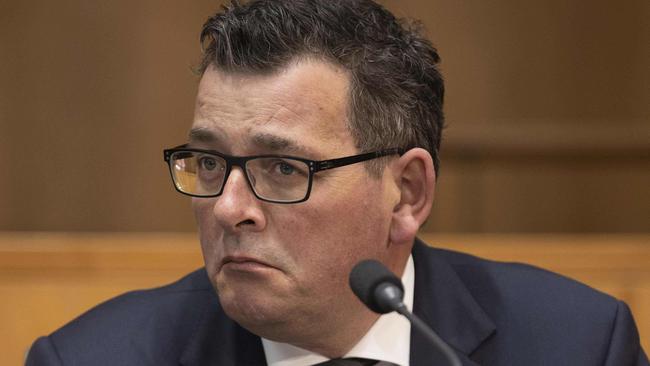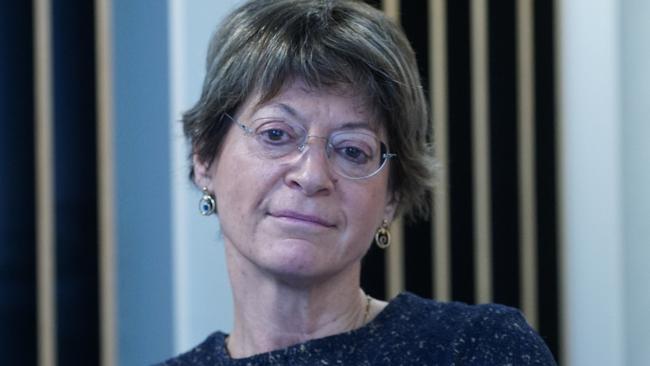IBAC’s public hearings may face more scrutiny under proposals from integrity inquiry
Victoria’s anti-corruption watchdog may find it more difficult to conduct public examinations under strict proposals from a new inquiry.
Victoria
Don't miss out on the headlines from Victoria. Followed categories will be added to My News.
Victoria’s anti-corruption watchdog would face greater scrutiny over its ability to hold public hearings and the scope of the state’s Ombudsman expanded under changes recommended by a parliamentary committee.
The proposals could make public examinations more difficult and come despite Commissioner Robert Redlich earlier this year telling politicians that more interviews should be aired openly.
A greater focus would also be placed on managing the mental health of people who are investigated or interviewed by these bodies.
The state’s Integrity and Oversight Committee on Thursday released its majority report into how agencies, including the Independent Broad-based Anti-Corruption Commission, handle the welfare of witnesses.
An inquiry was sparked by the suicide of a former Casey councillor who was interviewed in public hearings as part of Operation Sandon, an investigation into allegations of dodgy land deals.
In its main report, the committee called on the state government to examine ways to improve how IBAC justified its public hearings.

Under the current laws, hearings must be held in private except for “exceptional circumstances” and it must also be proven that it will not cause “unreasonable damage to a person’s reputation, safety or wellbeing”.
The committee, which currently has a majority of Labor MPs, recommended legislative changes that require the watchdog to draw up new guidelines clearly spelling out how to decide when this damage is unfair to the person being interviewed.
A special report would also have to be written with each investigation justifying why public hearings passed these criteria.
The report found IBAC did not have enough official advice or guidance about how it decided when public hearings were needed.
“This is concerning to the Committee, particularly considering that Commissioner Redlich and Deputy Commissioner Mr David Wolf were unable to provide a clear explanation in the public hearing of the concept of ‘unreasonable damage’ and how IBAC determines what is ‘unreasonable’,” it said.
Public hearings became a political issue this year after it was revealed Premier Daniel Andrews was interviewed at least twice by IBAC in private.

In May, the inquiry asked Commissioner Redlich about these incidents and the public video feed was cut by its Labor chair Harriet Shing before he provided an answer.
The commissioner later hit out against this process and requested the opportunity to speak again, which was denied.
At the time, he told the inquiry that IBAC’s rules were already stricter than most and said that public hearings were a preferred model.
“I don’t think there can be any arguments that public hearings are still the most effective way of developing trust in institutions that have to investigate and expose corruption,” Commissioner Redlich said at the time.
“Minds can differ about the extent to which public hearing rights should be limited,” he said.
“Our requirements are more onerous than they are in other circumstances.
“I think there could be serious consideration given to the exceptional circumstance requirements.”

Other key recommendations included providing better access to mental health helplines and crisis services to people interviewed or investigated by IBAC.
The Victorian Ombudsman would also have more power to investigate misconduct that is not serious enough for IBAC.
Public interest complaints often come to the anti-corruption watchdog first and about 70 per cent of these are then referred on.
Due to a technical error/oversight in the legislation, however, the Ombudsman is not able to investigate all categories of improper conduct,” the Ombudsman told the committee.
“The gap in jurisdiction results in a wholly unsatisfactory scenario whereby a whistleblower can make a public interest complaint that, unless it meets the high threshold of serious or systemic corruption, would not be investigated.”
The committee recommended the state government examine changes to the current laws to fill this gap.
The Victorian Inspectorate said they accepted the report’s recommendations about how they could assist.
“We have always been acutely aware of the importance of witness welfare as evidenced from our 2018 special report,” Inspector Eamonn Moran said.
“The VI recognises that integrity investigations are an inherently distressing process.
“The work of the VI in advocating for the welfare of witnesses, complainants, and persons of interest across the integrity system is to help minimise this distress.
“No matter who the witness is, or why they are being investigated, integrity agencies must demonstrate a regard for their welfare.”




